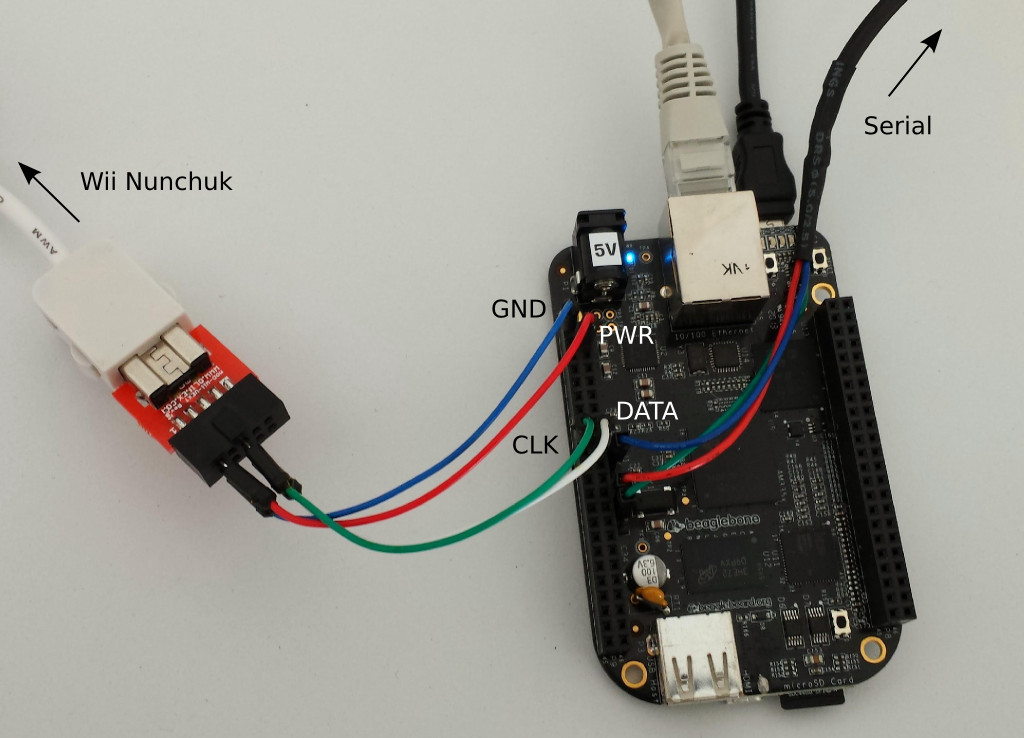
The major improvements and updates are:
- All the practical labs are now done on the highly popular ARMv7 based BeagleBone Black, which offers much more expansion capabilities than the Calao USB-A9263 platform we were using. This also means that participants to our public training sessions keep the BeagleBone Black with them after the session!
- All the course materials and practical labs were updated to cover and use the Device Tree mechanism. We also for example cover how to configure pin muxing on the BeagleBone Black through the Device Tree.
- The training course is now centered around the development of two device drivers:
- A driver for the Wii Nunchuk. This device is connected over I2C to the BeagleBone Black, and we detail, step by step, how to write a driver that communicates over I2C with the device and then exposes the device functionalities to userspace through the input kernel subsystem.
- A minimal driver for the OMAP UART, which we use to illustrate how to interface with memory-mapped devices: mapping I/O registers, accessing them, handling interrupts, putting processes to sleep and waking them up, etc. We expose some minimal functionality of the device to userspace through the misc kernel subsystem. This subsystem is useful to expose the functionalities of non-standard types of devices, such as custom devices implemented inside FPGAs.
And as usual, all the training materials are freely available, under a Creative Commons license, so you can study in detail the contents of the training session. It is also worth mentioning that this training session is taught by Bootlin engineers having practical and visible experience in kernel development, as can be seen in the contributions we made in the latest kernel releases: 3.9, 3.10, 3.11 and 3.12.
For details about cost and registration, see our Training cost and registration page.

free electron is quite famous in Indian enbedded system enthusiast.
Your free session worth lot of knowledge. keep it up and if you need volenteers then let me know.
Regards
abi
Hi Abi.
Thank you for your appreciation! Indeed, you can help us by reviewing our training materials (the ones on https://github.com/bootlin/training-materials/), and reporting issues to us.
Thanks again,
Michael.